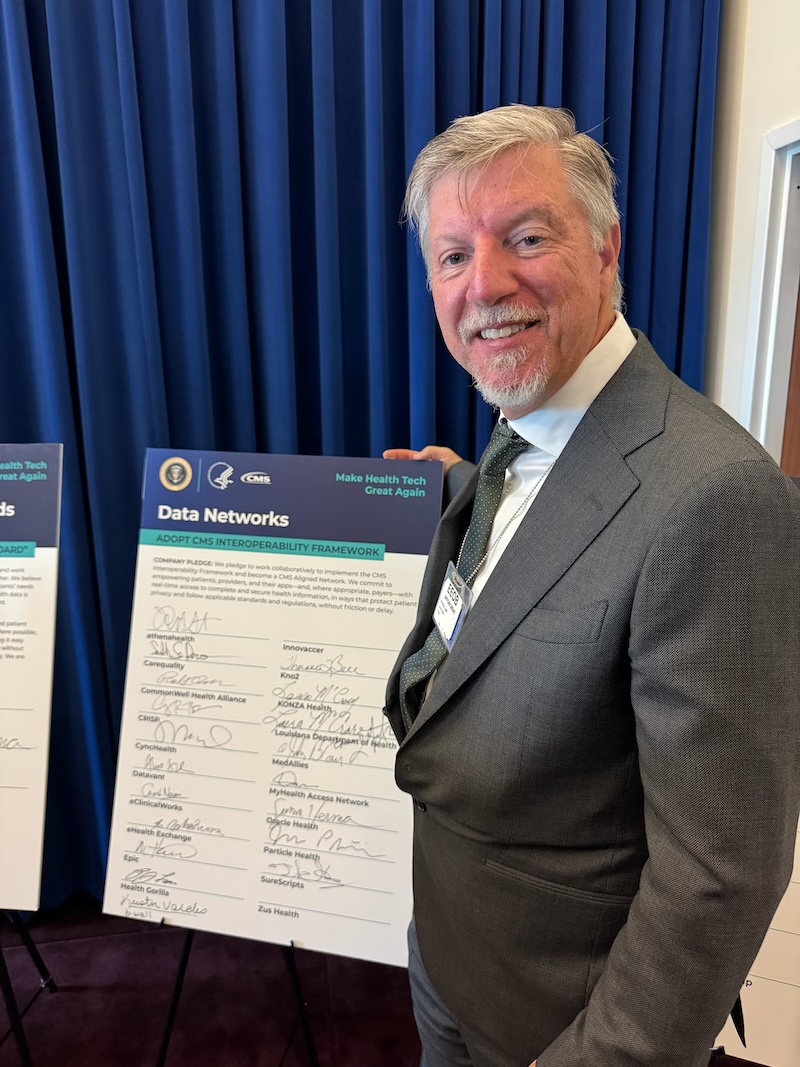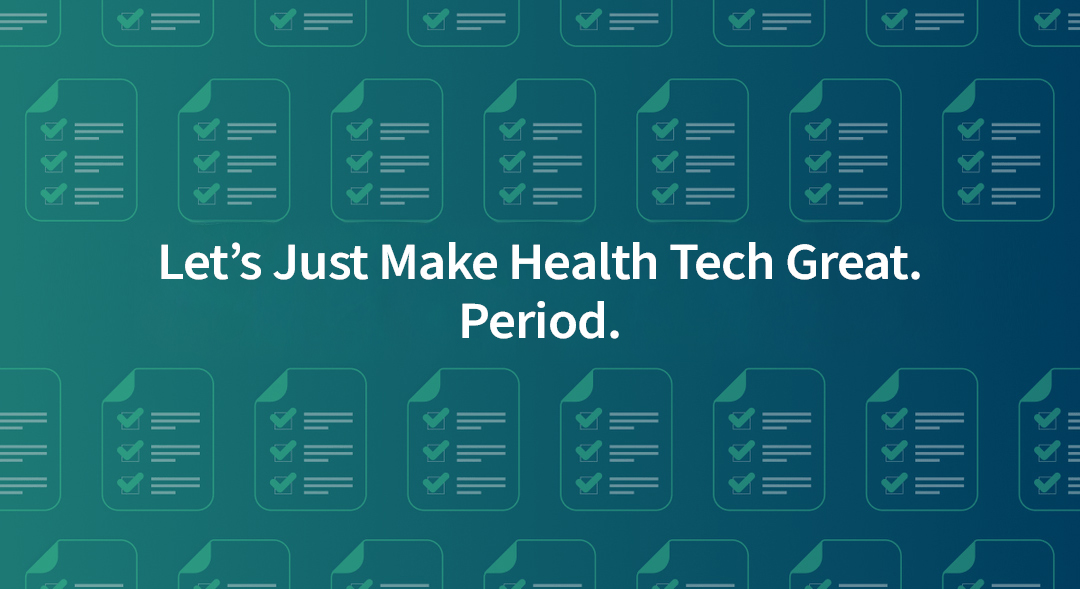
Last week, I had the opportunity to represent Health Gorilla at the ”Make Health Tech Great Again” event hosted at the White House, marking the launch of the CMS Health Technology Ecosystem initiative. The name might sound technical, but the premise is clear: the carrot/stick, glacial pace of regulation is not enough - our community must take urgent, voluntary, collaborative action to achieve the modern, connected healthcare experience we expect.
Coming on the heels of the May 2025 CMS Health Technology Ecosystem RFI, this event came together quickly. Despite the short notice, over 60 companies representing an impressive cross-spectrum of health technology stakeholders have already signed one or more of the 7 simple, collaborative Early Adopter Pledges designed to shepherd collaboration, not regulate. We expect that list to grow rapidly, as CMS welcomes additional pledges beyond the initial cohort. We are off to a great start, but the next wave of Early Adopters will help achieve critical collaborative mass.
Some of the fanfare, not surprisingly, leaned political. There was no shortage of buzzwords, slogans, and a bit of theater. Beneath that, however, the message was serious: now the time for interoperability to deliver high-impact outcomes. The health technology community has had its moments of achievement over the last 50+ years - making this potential transformative moment possible. Our government believes that this collaboration is the “secret sauce” that completes the recipe for a golden age of healthcare. Fanfare aside, I think most stakeholders will agree that if we make health tech unambiguously great, we will be doing so for the first time.
A Voluntary Framework with Real Consequences
At face value, the CMS-aligned network initiative is not a mandate. There are no fines for failing to join, and no financial incentives—at least not yet—for signing on.
So why does it matter?
Because CMS isn’t just asking for support of an abstract vision. It’s pointing toward specific outcomes it expects to see from the industry, and soon. These include:
- Seamless digital check-in and onboarding
- Trusted patient identity via IAL2
- Longitudinal record sharing for chronic condition management
- AI-assisted tools that help navigate care
If we don’t come together to show tangible progress on these goals, CMS has made it clear that it may pursue other levers, regulatory or otherwise. The pledge may be voluntary, but the direction of travel is not.
Why This Moment Feels Different
There have been many frameworks. Many declarations. Many moments that promised transformation.
So what’s different now?
First, the coalition is broader. CMS has created an expansive “tent” to host established, adjacent, and emerging innovators. For example, the Data Network Early Adopter cohort includes not only every TEFCA QHIN, but also ten additional on-ramps, HIEs and other networks that can contribute to the most robust, capable patient network ever. All of this is underpinned by critical security standards like HITRUST and HIPAA’s privacy umbrella, but what your entity can do now is as important as what it has done in the past.
Second, the expectations are clearer. The administration isn’t just asking for connection—it’s asking for impact. Can a patient access their records through a trusted app of their choice? Can a doctor see a complete picture of a patient’s health, no matter where they were treated? Can we empower AI in a way that respects patient trust and enhances safety?
Third, the political calculus has shifted. Interoperability is no longer a niche technical issue. It’s now a national health strategy. This framework is part of a broader White House effort to modernize digital services, reduce administrative burden, and usher in meaningful reforms ahead of America’s 250th anniversary.
Our Perspective: Interoperability for Innovation
At Health Gorilla, we signed the pledge because it aligns with our curious, “what’s next?” ethos. We’ll always join forces with the health tech builders and creators. The three part-confluence of artificial intelligence, trusted networks, and the creative tailwinds of the CMS Interoperability Framework create a rare moment in time where rapid innovation is possible.
That’s why we’ve invested in building an interoperability innovation platform that delivers AI-ready, de-duplicated, longitudinal records across a trusted data network. We’re committed to making it easier for our healthcare industry clients to unlock value from that data—while honoring the responsibility that comes with access.
We’ve been working toward these goals long before last week’s pledge, but we love the massive spark and implicit challenge from CMS to seize the day.
What We’re Asking of Our Clients and Partners
If you’re reading this and you’re part of the health tech ecosystem, here’s the call to action:
Sign the pledge.
It’s not just symbolic. It’s a stake in the ground—a public statement that your organization is ready to contribute and help build the kind of health system we deserve. Let’s accelerate the pace of innovation, together.
At Health Gorilla, we’ll support you however we can. Whether it’s TEFCA connectivity, IAL2 implementation, or helping you bring normalized clinical data into patient-facing applications, we’re here to help remove friction and reduce the compliance burden.
But more than that, we’re asking you to think bigger.
This is not just about compliance. It’s about relevance. It’s about signaling that your organization wants to shape the next chapter of digital health, not get dragged into it.
The question is not whether you’ll comply. It’s whether you’ll lead.
Let’s Stop Talking About Greatness. Let’s Deliver It.
The White House event had its moments of drama and inspiration. But what comes next is what matters.
Will we use this moment to rally together and deliver on decades-old promises of interoperability? Or will we let another cycle of press releases pass without real transformation?
We’re betting on the rally.
Let’s stop arguing about whether health tech was ever great. Let’s focus on making it great—now.
Period.
Want to sign the CMS Aligned Network pledge or learn what it takes to become aligned? Reach out to us. Our team can help you assess readiness, close any gaps, and become part of the next generation of trusted health data networks.




